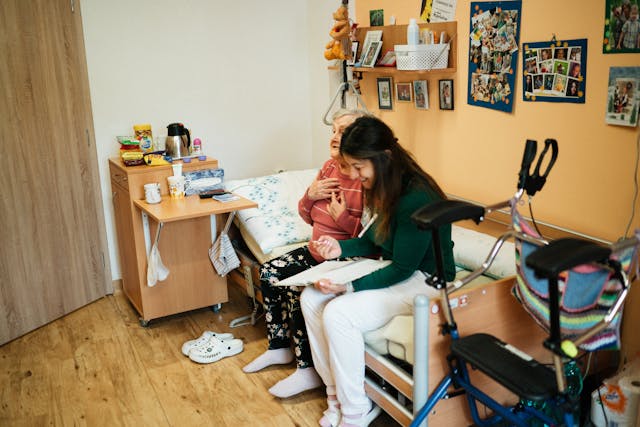Researchers at the University of Houston’s Andy & Barbara Gessner College of Nursing have developed a systematic methodology for revamping a structured life review intervention for individuals with dementia. This initiative also provides educational resources and teaching strategies for older adults undertaking caregiving roles. Life review, a natural introspective process where individuals reminisce about past events to derive a deeper understanding of themselves, has been identified as a significantly beneficial therapy. Particularly for the over six million Americans grappling with Alzheimer’s disease—the predominant form of dementia—life review has been recognized for its ability to enhance life quality. It has been proven to mitigate depression in older adults and alleviate the stresses and burdens shouldered by caregivers.
Despite their pivotal role, caregivers’ involvement in life review therapy has remained ambiguous until now. As the demands on caregivers intensify, they often experience a series of losses, including social disconnection, diminished empowerment, and psychological adversities. There’s been a lack of focused research on establishing an effective life review intervention that lessens the caregiver’s burden while prolonging the physical and cognitive well-being of those with dementia.
Associate Professor of Nursing Cheryl Brohard highlights in The International Journal of Reminiscence and Life Review the critical vulnerability of caregivers to lose their sense of purpose, the emotional bond with their dementia-afflicted patients, and their sense of accomplishment and satisfaction. Caregivers frequently encounter depression and social isolation due to the challenges of maintaining personal interactions outside of their caregiving responsibilities, putting them at significant risk for elevated stress and caregiver burden.
Brohard, alongside undergraduate student Yolanda Batz, documented the redesign and execution of a tailored structured life review intervention for caregivers working with dementia patients. This initiative includes creating Life Story Books, which have been linked to improved patient mood and reduced caregiver burden. Notably, caregivers, particularly those married to people living with dementia, have found biographical reminiscence work to offer a renewed sense of hope and bolstered interpersonal trust.
The adaptation of this intervention unfolded through five stages: an exhaustive literature review, the development and instruction of a caregiving curriculum, weekly life review and feasibility sessions, culminating in an evaluative phase. This modified approach underscored caregivers’ desire for communal learning opportunities within the training sessions. It demonstrated that minimal external support was necessary for the fidelity sessions caregivers conducted with their recipients over six weeks.
The theoretical foundation of this structured life review, combined with ethical decision-making, sensitivity training, mindfulness, adult learning, and communication techniques, served as the blueprint for the curriculum. This curriculum aimed to equip non-medical professionals with the knowledge and skills to effectively execute a life review.
Founding Dean and Professor and Humana Endowed Dean’s Chair of Nursing at the Gessner College of Nursing, Kathryn Tart, emphasized the profound importance of supporting caregivers and individuals living with dementia within the realms of teaching and nursing care. She highlighted how the research aligns with the American Association of College of Nursing’s domains for nursing competence as outlined in the Essentials: Core Competencies for Professional Nursing Education, steering the direction of supportive care in nursing practice and clinical education.
More information: Cheryl Brohard et al, Adapting the Structured Life Review for People Living With Dementia: Implementation With Unpaid Older Adult Caregivers, The International Journal of Reminiscence and Life Review.
Journal information: The International Journal of Reminiscence and Life Review Provided by University of Houston








